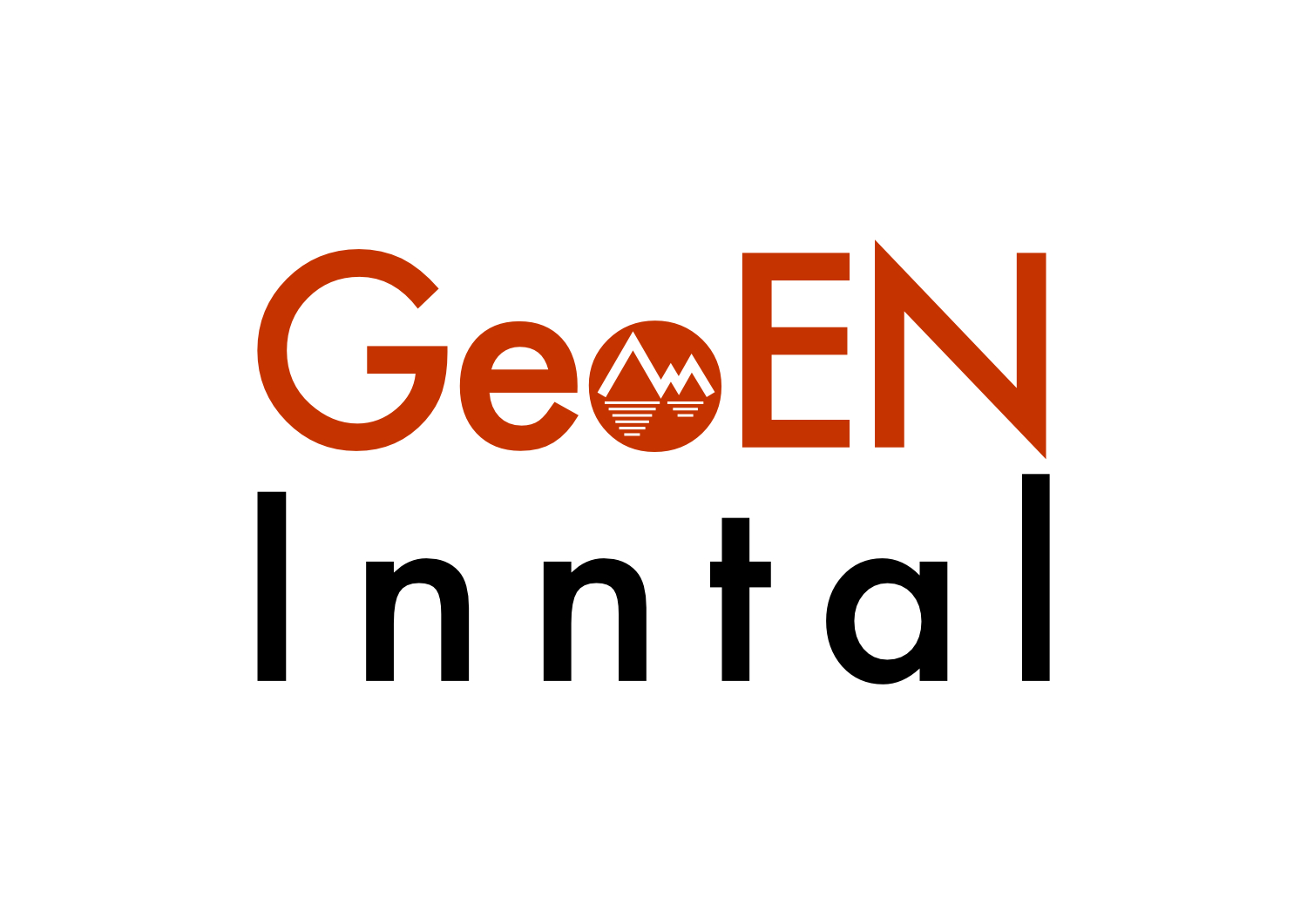Integrative geothermal energy potential in the eastern part of the Inn Valley: A key demo case for resilient geothermal energy supply in Alpine regions
GeoEN-Inntal investigates the possible use of geothermal energy for heating, cooling, heat storage and electricity production in Alpine settlement areas. In times of climate change and required substitution of fossil fuels, the implementation of renewable energy is essential and complies with the aims of the UN Sustainable Development Goals (//sdgs.un.org). Alpine regions might benefit from the availability of on-site renewable energy sources like hydropower, biomass and solar energy, but are often confronted with the limitation of available surface space, strong impact of the surface relief (e.g., shadowing) and a higher risk of negative impacts on health, biodiversity and landscape. Geothermal energy represents a space saving, on-site available and sustainable energy source, which is moreover independent of weather conditions and seasonal changes. Using geothermal energy helps to mitigate the dependency on energy imports, reduces the impact of renewable energy use on surface space consumption, landscape and health. It is moreover capable to provide base load supply not affected by varying external factors. However, geothermal energy still covers a niche inside the energy sector, although it has the potential to make significant contributions to the resilience and sustainability of the energy supply in Alpine regions.
Aims
The project aims at a spatial evaluation of resources and limitations of use related to geothermal energy at its full technological spectrum including small-scale and large-scale applications as well as underground heat storage using the Eastern part of the Inn valley region between Innsbruck and Kufstein, which serves as a role model for other Alpine areas. In the past years, there have been several local initiatives to use geothermal energy in the Inn valley. So far, there has been no regional and integrative consideration of all possible uses of geothermal energy. The GeoEN-Inntal project aims at a transdisciplinary geo- and socio-scientific study to evaluate future options and hurdles related to geothermal energy use.
Objectives
- Evaluation of spatial resources and limitations of geothermal energy use at its full technological spectrum including small-scale and large-scale applications as well as underground heat storage
- Investigation of key environmental, economic and social indicators towards a safe, sustainable and accepted deployment of geothermal energy use in Alpine regions
- Evaluation of the impact of increased geothermal energy deployment on the resilience of the energy sector in the Inn valley and evaluating the resilience of geothermal energy use in the context of climate change
- Investigation of integration pathways of geothermal energy use in future energy supply concepts (heat and cold as well as electricity) in Alpine regions from a geoscientific, energy-economic, social and environmental point of view
- Transfer of scientific knowledge on geothermal energy options in Alpine regions to society
Key results
- A comprehensive collection of transdisciplinary datasets describing resources and possible conflicts related to geothermal energy use in the eastern part of the Inn valley
- Public accessible conceptual and numerical models providing new insights to the geoscientific conditions for using deep geothermal energy
- GIS map series describing resources and limitations of use related to the use of shallow and deep geothermal energy, integrated into a web service offered by the Geological Survey of Austria
- Evaluation of possible hazards related to seismicity associated to the use of deep geothermal energy
- Geothermal resource report covering the full spectrum of geothermal energy technologies including underground thermal energy storage and petrogeothermal energy use options inside the investigation area
- Stakeholder interaction analyses on requirements, attitudes and participative aspects leading to non-technological key indicators related to a better integration of geothermal technologies in future energy supply concepts
- Collaborative approaches for integrative resource evaluation and strategic planning concerning the deployment of geothermal energy in Alpine regions tested in specific case study sites inside the Inn Valley investigation area
- Initiation of a regional (geothermal) Energy Council
- Joint impact and resilience analysis related to geothermal use inside the energy sector in Alpine regions
- Regional development strategy concerning the sustainable deployment of geothermal energy for 2040 covering the entire investigation area
The regional development strategy constitutes a key result of GeoEN-Inntal and aims to feed into the regional policy circle. The strategy will elaborated in collaboration with key regional stakeholder and the founded Energy Council.
Project details
- Duration: 3 years (1.11.2022 – 31.10.2025)
- Funding agency & programme: ÖAW Earth System Sciences Programme
- Project volume: 490,000 EUR
- Team: Innsbruck University, GBA, ZAMG

